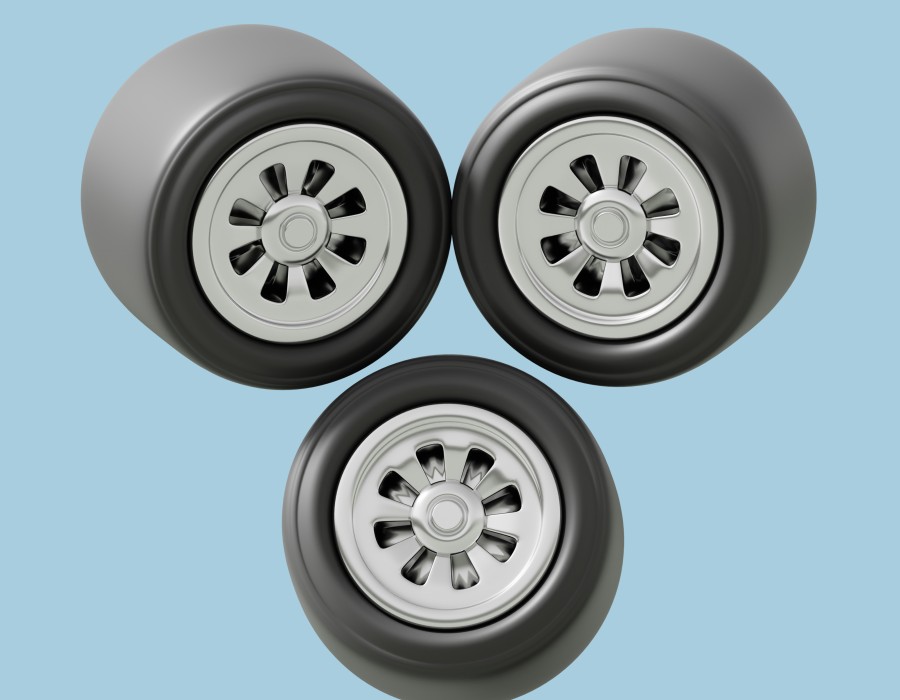Industrial wheels are an essential component in many workplaces—from warehouses and factories to hospitals and airports. They support heavy loads, enable mobility, and contribute to operational efficiency. However, despite their robust design, industrial wheels can wear out prematurely if not properly maintained. Investing time in regular maintenance not only prolongs the lifespan of these wheels but also improves safety and reduces costly downtime.
Here are the top maintenance tips to keep your industrial wheels rolling smoothly for longer.
1. Regular Cleaning to Prevent Build-Up
Dirt, debris, and grime can quickly accumulate on wheels, especially in environments like manufacturing plants or outdoor settings. This build-up can cause wheels to jam, reduce their rolling efficiency, and increase wear on the tread.
Maintenance Tip: Clean wheels regularly using a damp cloth or mild detergent. Avoid harsh chemicals that can degrade rubber or polyurethane treads. For wheels with bearings, clear out any dirt lodged inside to ensure smooth rotation.
2. Inspect for Damage and Wear Frequently
Routine visual inspections are crucial for identifying early signs of damage such as cracks, flat spots, or worn tread. Damaged wheels can lead to uneven movement, excessive noise, or even equipment failure.
Maintenance Tip: Schedule inspections weekly or monthly depending on the intensity of use. Look for signs of corrosion on metal parts and check if the wheels still rotate freely without wobbling.
3. Lubricate Bearings and Moving Parts
Many industrial wheels have bearings to reduce friction and facilitate smooth rotation. Over time, bearings can dry out, collect dirt, or become corroded, which hinders wheel performance.
Maintenance Tip: Apply appropriate lubricants to bearings and swivel joints regularly, especially if the wheels operate in harsh or wet conditions. Use lubricants recommended by the wheel manufacturer or a high-quality grease suitable for industrial use.
4. Balance Load Distribution
Overloading wheels beyond their rated capacity causes excessive stress, leading to premature wear or even failure. Uneven load distribution across multiple wheels can also create imbalances that damage wheels and casters.
Maintenance Tip: Always adhere to the manufacturer’s load ratings for each wheel. Make sure that heavy equipment or carts are balanced correctly so the weight is evenly shared among all wheels.
5. Check Fasteners and Mounting Hardware
Loose or missing bolts, nuts, and other fasteners can cause wheels to become unstable or detach entirely, posing serious safety risks.
Maintenance Tip: Tighten all mounting hardware during inspections. Replace any worn or stripped bolts immediately to ensure wheels are securely attached.
6. Replace Wheels Before They Fail
While proper maintenance can extend wheel life, eventually all wheels will wear out. Operating with worn or damaged wheels can lead to accidents or damage to the floor and equipment.
Maintenance Tip: Keep track of wheel condition and replace wheels at the first signs of significant tread wear, cracking, or bearing failure. It’s better to replace a wheel early than to risk equipment downtime or injury.
7. Match Wheels to the Environment
Using wheels that are not suited for the floor type or environmental conditions can accelerate wear. For example, rubber wheels might wear quickly on rough concrete, while metal wheels can damage delicate flooring.
Maintenance Tip: Select wheels designed for your specific application and surface. Also, consider environmental factors such as temperature, moisture, and exposure to chemicals when choosing wheel materials.
Conclusion
Proper maintenance of industrial wheels is a small investment that pays off with improved equipment lifespan, reduced downtime, and enhanced workplace safety. By cleaning regularly, inspecting for damage, lubricating moving parts, balancing loads, checking fasteners, timely replacing worn wheels, and choosing the right wheels for your environment, you can keep operations running smoothly and efficiently.
Taking care of your industrial wheels today means fewer interruptions and better performance tomorrow.





Comments